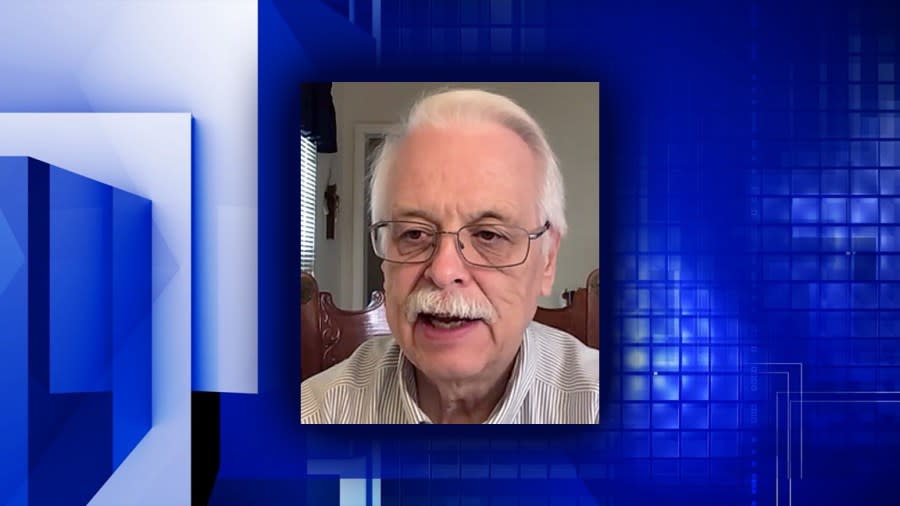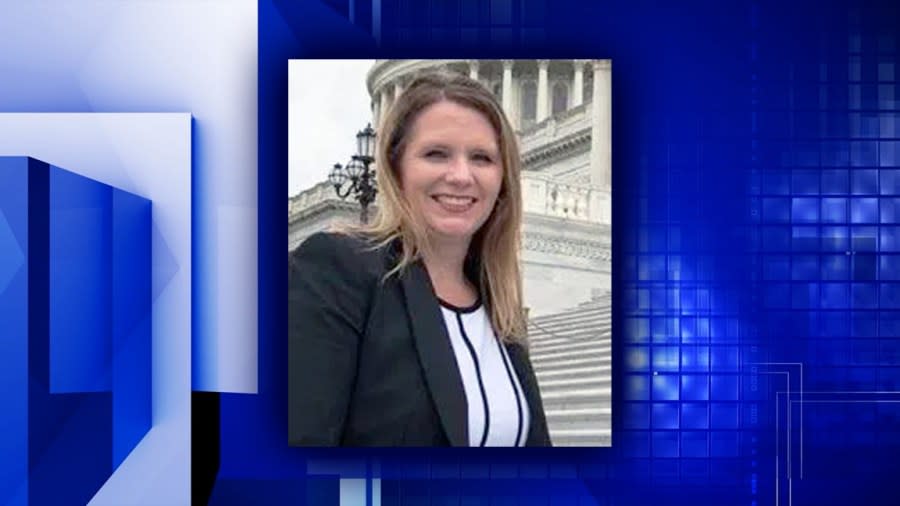Iowa Freedom of Information Council part of lawsuit over Spiegel letter access

- Oops!Something went wrong.Please try again later.
There’s a new voice in the lawsuit between the City of Davenport and Davenport resident Ezra Sidran over documentation of a settlement payment to former city administrator Corri Spiegel.
Randy Evans, executive director of the Iowa Freedom of Information Council, explains how his organization is involved.
IA-FOIC-motion-to-interveneDownload
“We have been involved through the years with the controversies that bubble up in communities around the state,” said Evans. “We follow what’s going on and when things are occurring that we believe are inappropriate, we will step in and try to engage with government leaders to help them understand why we think that better transparency serves them well and it also serves their constituents, the taxpayers.”

For Evans, the timing of the agreement between the city and Spiegel raises questions. “This agreement had been worked out and had been signed by the city and Ms. Spiegel before the election. but was not made public until after the election. To me, that is just a cut-and-dried example of government officials forgetting that, in this case, city government in Davenport doesn’t belong to the elected city council members and the mayor; it belongs to the citizens of Davenport.”
He says the agreement between the city and Spiegel should be more public. “We believe strongly that this letter was the basis for $1.6 million in taxpayer money going to Ms. Spiegel,” Evans said. “We believe strongly that that is a public record that the citizens of Davenport should be able to read and see so they can evaluate the allegations that she was making apparently in the letter, so that the citizens can evaluate the diligence or lack of diligence by the city council and investigating these allegations before the vote on paying the settlement.”
‘I’ve never seen an example as egregious’
The settlement’s approval is also troubling. “The fact that the settlement was approved without a formal vote of the city council is just the antithesis of what government transparency should be about it. It shouldn’t be carried out in secret,” Evans said. “In my 50-some years of paying attention to these kinds of cases, I’ve never seen an example as egregious as what occurred in Davenport, where Davenport’s own city ordinances required that there be a formal vote of the city council on any settlement that involved the payment of $50,000 or more. The former city attorney’s assertion that he had the consent of the city council and did not need a formal vote just flies in the face of what the plain reading of the city ordinances is.”
“It also flies in the face of what the public meetings law requires,” he continued. “It allows government boards to meet for what is called ministerial purposes, which is kind of housekeeping details. The decision on expending $1.6 million is a far cry from a housekeeping detail. We just think it’s atrocious that the controversy has gotten to this point without city leaders admitting that they had simply botched this from the beginning.”

Evans said the Iowa FOIC isn’t a new party to the lawsuit but are more like advisors to the suit. “We asked the court to allow our organization to intervene in the city’s lawsuit against Mr. Sidran so that we could provide the court with our legal analysis of the city’s obligations under the public records law, so that we could provide the court with our assessment of why we believe that the letter should be made available to everybody who’s asking to see it.”
Evans accuses the city of choosing Sidran specifically for the lawsuit and not groups with deeper pockets who had also requested the letter. “It’s not a coincidence, I don’t believe that the city of Davenport chose to sue Mr. Sidran, a retiree who doesn’t have a lawyer, instead of bringing the legal challenge against an entity that had also asked for the letter. The city knew that if they sued a member of the media, those employers would make lawyers available to represent the media’s position. The city knew that Mr. Sidran wasn’t going to be able to go out and hire a lawyer at hundreds of dollars per hour on a retiree’s income. We asked the court to allow us to intervene, to be able to bring to the court’s attention the legal basis that we believe makes the letter a public record.”
Evans is taking the city’s refusal with a grain of salt. “The city resisted; their assertion that they have no position on whether the letter should or shouldn’t be public record is farcical.”
‘Taxpayers … were paying hundreds’
He said Davenport residents need to be aware of how their tax dollars are spent. “The taxpayers of Davenport, whether they know it or not, were paying attorneys hundreds of dollars an hour to try to keep our organization out of the court case. The judge fortunately saw the rationale for our request to intervene and granted it, which was a kind of a stinging rebuke for the city.”
Our Quad Cities News reached out to the City of Davenport for a statement but did not have a response as of 4:30 p.m. Tuesday.
The next hearing in the case is scheduled for May 14.
For the latest news, weather, sports, and streaming video, head to WHBF - OurQuadCities.com.

